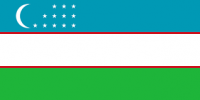Uzbekistan: Karimov’s Successor Faces an Economic Mess
Rédigé par admin - - aucun commentaire
But now there are signs that years of corruption, neglect and heavy-handed state management, along with the plunge in global energy prices, have placed Uzbekistan’s economy in a deep hole from which it will be difficult to dig out. Quite simply, Karimov’s successor will face a daunting challenge to keep the leaky economy afloat.
The chief source of Uzbekistan’s economic woes is low energy prices. This has impacted Uzbekistan in two ways: first, it has significantly curtailed earnings from natural gas exports, which, traditionally, have been an important source of revenue for Uzbek government coffers; second, it is the central cause for a drastic decline in the amount of remittances sent back to Uzbekistan by labor migrants abroad, especially in Russia.
Remittances are arguably the chief pillar upon which Uzbek economic stability rests. Back in 2012, before the plunge in energy prices began, official Russian data showed that remittances sent back to Uzbekistan from Russia totaled $5.7 billion. That same year Uzbek government’s earnings from gas exports stood at $5.03 billion and cotton exports were estimated at $1.25 billion.
Since 2012, the value of remittances sent to Uzbekistan from Russia has gone into a downward spiral. After hitting a peak of $6.67 billion in 2013, according to Russian Central Bank figures, the annual remittance total fell to $3.05 billion in 2015. And during the first quarter of 2016, remittances stood at $378 million, a sharp drop from the $466 million during the same period the previous year.
Given that the energy-export-dependent economies of Russia and Kazakhstan – the favorite destinations for Uzbek guest workers – show no signs of an imminent economic recovery, it is a good bet that employment opportunities for labor migrants will dwindle and remittance figures will keep heading south for the foreseeable future. That raises the specter of increasing domestic discontent in Uzbekistan because the moribund Uzbek labor market lacks the ability to absorb the spreading pool of returning labor migrants.
With the energy sector struggling, and remittances evaporating, Uzbek authorities cannot count on cotton to make up some of the income gap. Export volumes have dipped in recent years and prices for the commodity have fluctuated.
US Department of Agriculture estimates show that Uzbek cotton exports hit a peak of 3.2 million bales during market year (MY) 2012/13. In MY 2015/16, the figure fell to 2.3 million bales. The projected export total for MY 2016/17 is 2.75 million bales. But prices for cotton on global commodity markets are markedly lower these days, as compared with 2013-14.
Uzbek official data seems to defy global economic realities and indicates that the country’s economy remains relatively healthy.
According to government statistics, GDP during the first half of 2016 grew at a rate of 7.8 percent compared with the same period of 2015. Overall, GDP grew by 8 percent in 2015, 8.1 percent in 2014 and 8 percent in 2013.
Inflation likewise appears to be in check, Uzbek government statistics suggest. The inflation rate slowed to 2.5 percent during the first half of 2016. Overall, the rate stood at 5.6 percent for 2015 and 6.1 percent in 2014.
The veracity of such favorable economic figures is called into question by the steady decline in the value of the national currency, the som, on the black market, which is perhaps the clearest, market-based indicator of the country’s economic performance.
In August of 2013, the black market exchange rate stood at about 2,800 to one US dollar. In August 2016, the rate was roughly 6,380 to the dollar. By comparison, the official government exchange rate was 2,124 Uzbeks soms per dollar at the end of August 2013. And on August 31 of this year, the official rate was 2,989 to one.
It is worth noting that the black market rate has remained relatively stable since news of Karimov’s incapacitating illness was announced. This would indicate that the market, at least, does not expect much to change in the way the country is run.
Copyright © eurasianet
